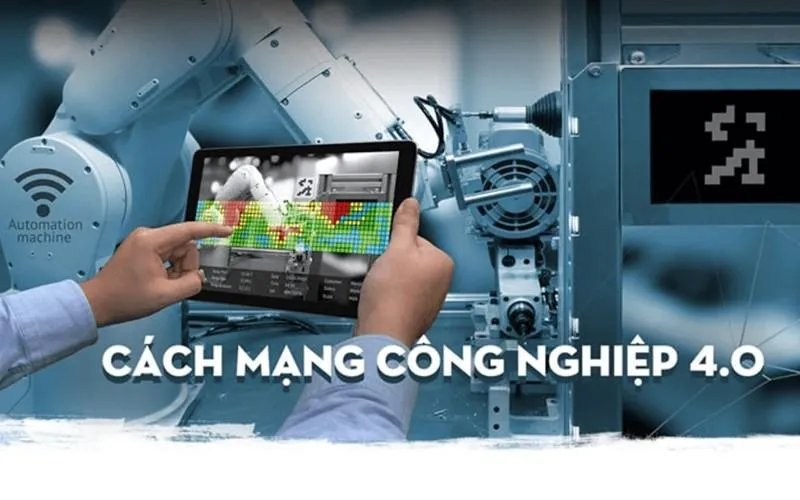
Vietnam’s garment sector getting ready for Industry 4.0!
Domestic enterprises are embracing robotics and advanced technologies in their production lines to boost smart manufacturing activities, but there is a long road ahead for those wishing to keep up with the Fourth Industrial Revolution.
In a survey that was conducted recently by the research team of Vietnam National Textile and Garment Group and institutes at over 300 apparel firms in the country, it was distinct that the majority of these firms were working towards keeping pace with Industry 4.0
And, how were they doing it?
Increasing productivity, minimizing production costs and workforce, and adopting the latest technologies were top in the line for many of the firms.
In the trend of Industry 4.0, smart manufacturing is a combination of IT and other technologies to optimize progress in order to meet the dynamic transformation of the market.
Robots have a critical role in the “factory of the future”. Producers are now deploying advanced robotics as an essential element of advanced automation that enables the self-controlled factory of the future. Enhancing plant structures and processes with digital technologies can increase productivity and flexibility in both the factory and the supply chain, enabling producers to rapidly adjust to changing customer needs.
According to a World Economic Forum report, the value of digital transformations in the Fourth Industrial Revolution is estimated at $100 trillion in the next 10 years alone, across all industries, and locations. The manufacturing sector, which has long been a driver of global prosperity and economic growth, is a key to this transformation.
Preparing for the future
At last year’s World Economic Forum for the ASEAN in Hanoi, Vietnamese Prime Minister Nguyen Xuan Phuc spoke of the need for businesses in the country to adopt Industry 4.0 technology including automation, big data analytics, robotics, and AI. Some businesses, especially the bigger state-owned enterprises, are heeding the call.
The smart factory market is poised to rise from $75 billion in 2018 to over $155 billion by 2025, according to a 2019 report by Global Market Insights, a global market research, and management consulting company. The market is driven by the growing demand for intelligent industrial solutions that can organize output and save on labour and operational costs. These types of factories are digitally advanced and connected facilities enhance the manufacturing performance, along with replacing human workers in a variety of operations.
Several technologies including IoT, AI, big data, and analytics in the smart factory market have the ability to operate autonomously and self-correct. Various planning and management software products detect probable errors and alert managers to eliminate losses, creating a high demand for these solutions.
Additionally, government initiatives and policies in European and Asian countries to promote the utilization of intelligent factory techniques are also major factors attributing to smart factory expansion.
“To keep its competitive edge in the global market, Vietnam needs to adopt industry digitalization and advanced manufacturing through robotics and automation. This is another area where ABB can contribute,” Brian Hull, country managing director of ABB previously told VIR. “We believe the Vietnamese government can support education that should focus on digital technologies in both vocational and tertiary education. It can also stimulate adoption through fiscal incentives to industry players and mandating smart technology in government tenders. The government should also focus on local innovation, by supporting and encouraging local startups and fostering a partnership model between industry, government, and academia in new-age technologies.”
Raimund Klein, head of digital industries at Siemens ASEAN said that solutions are flexible, but it is important to point out the weakness of facilities’ progress.
“I don’t think Industry 4.0 is just for big companies, it is for all companies. Smart manufacturing depends on customer demand, readiness, and understanding,” said Klein.
Nguyen Quan, chairman of the Vietnam Automation Association also said, “If you want to prepare and improve your lines, data should be collected in order to solve any problem.”
Quan stressed that Industry 4.0 will require significant upskilling, which may impact their organization and ways of working. An Industry 4.0 Vietnam survey report last year noted that there is a lack of clarity on the specific skills, knowledge, and capabilities required to make digital integration with Industry 4.0 a reality in Vietnam. Core capabilities required for Industry 4.0, such as data analytics, are also lacking.
Recently, the prime minister has asked the Ministry of Planning and Investment to develop a national strategy in this area, and requested ministries and localities to design an action plan in line with Industry 4.0. VIR

















